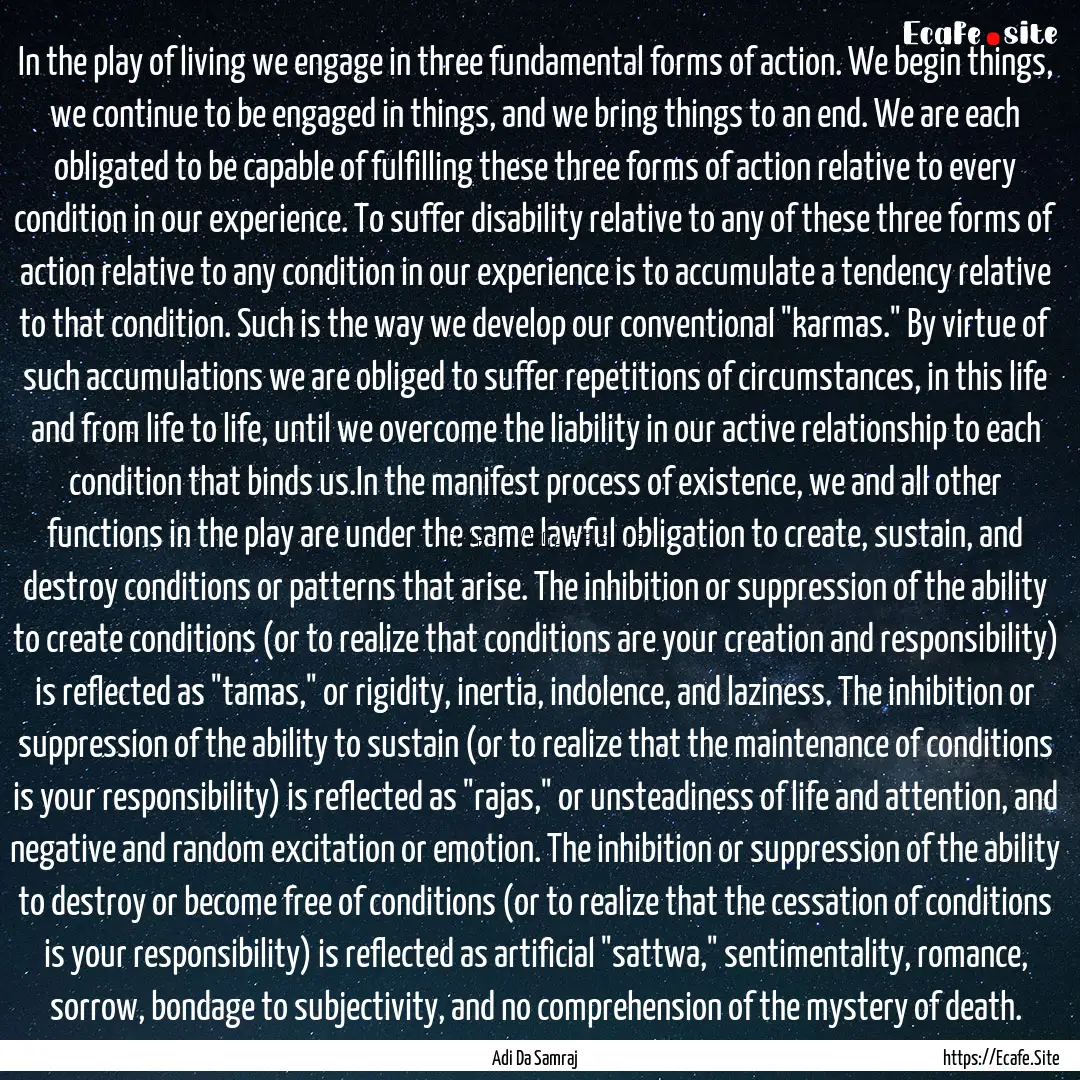
Report, if you have a problem with this page“ In the play of living we engage in three fundamental forms of action. We begin things, we continue to be engaged in things, and we bring things to an end. We are each obligated to be capable of fulfilling these three forms of action relative to every condition in our experience. To suffer disability relative to any of these three forms of action relative to any condition in our experience is to accumulate a tendency relative to that condition. Such is the way we develop our conventional "karmas." By virtue of such accumulations we are obliged to suffer repetitions of circumstances, in this life and from life to life, until we overcome the liability in our active relationship to each condition that binds us.In the manifest process of existence, we and all other functions in the play are under the same lawful obligation to create, sustain, and destroy conditions or patterns that arise. The inhibition or suppression of the ability to create conditions (or to realize that conditions are your creation and responsibility) is reflected as "tamas," or rigidity, inertia, indolence, and laziness. The inhibition or suppression of the ability to sustain (or to realize that the maintenance of conditions is your responsibility) is reflected as "rajas," or unsteadiness of life and attention, and negative and random excitation or emotion. The inhibition or suppression of the ability to destroy or become free of conditions (or to realize that the cessation of conditions is your responsibility) is reflected as artificial "sattwa," sentimentality, romance, sorrow, bondage to subjectivity, and no comprehension of the mystery of death. ”

Adi Da Samraj
From : The Eating Gorilla Comes in Peace: The Transcendental Principle of Life Applied to Diet and the Regenerative Discipline of True Health



